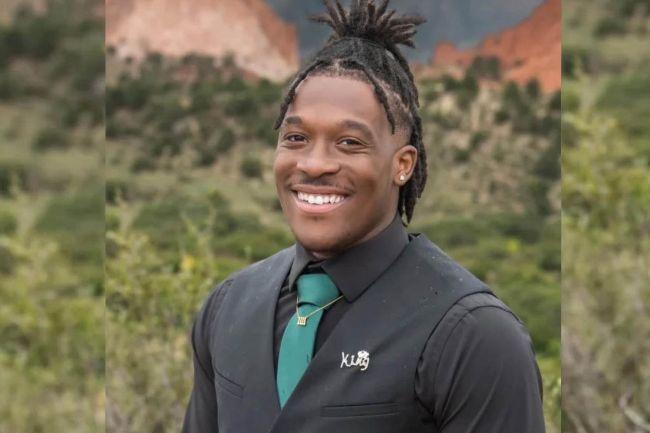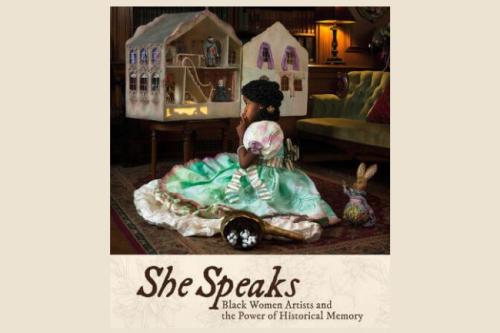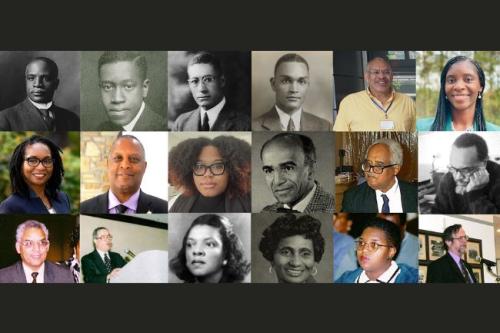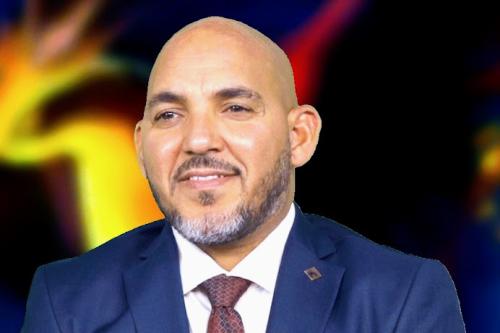Incoming freshman Ja Kobi Cockerham always knew he had a scientific mind. Even as a child, he wanted to know how the world worked at a fundamental level.
“I’ve always wanted to have an understanding of why,” he said. “Why do cars move? Why do I see the moon every day? Why do the leaves fall off trees?”
Growing up in Colorado Springs, Cockerham was at first driven by an interest in the human body, and wanted to become a neurosurgeon, following in the footsteps of his mother, who works as a nurse.
“I wanted to try to solve Alzheimer’s because that was a disease that I didn’t understand that my great grandmother had gotten at the time,” he said. “And I thought, if I could surgically prove this, that would be awesome.”
His focus shifted back to those initial childhood questions in high school, though, when he took his first physics class. He credits his teacher, Mr. Steele, with sparking his interest in the field, which ultimately led to him applying for a Howard University Karsh STEM scholarship to major in physics and mathematics. Founded in 2017, each year the scholarship awards dozens of the highest achieving students in the country a scholarship for tuition, mandatory fees, room, board and an allowance for books to pursue a Ph.D. or MD-Ph.D. in STEM. The program requires immense dedication and sense of purpose, two qualities that come easily to Cockerham. Although he is confident in his own scientific capabilities and is set on studying string theory with faculty like Dr. Tristan Hubsch, coming to Howard is about more than just the research.
“I knew that it was something that I needed for my journey to becoming a higher plural-disciplinary intellectual,” he said. “I knew I had always been smart in one discipline, which was science, and I knew that if I wanted to become great in a lot of things like socially, and just knowing how to interact with people and also developing in my journey — in my own identity as a Black man — that I could only get that at Howard University.”
That journey into his own identity has long been a driver for Cockerham, who described feeling out of place when his family moved from Mississippi to Colorado when he was five. “It was a complete culture shock, because I was surrounded by white people,” he explained. “And so, it was just like ‘okay, this is cool, this is cool. I never experienced this before.’ But I experienced a lot of academic racism, and even just racism outside of the academics. Whether it was walking home or whether it was during the election, it was just a lot that I experienced in Colorado.” For him, coming to Howard means an opportunity to truly feel like part of a community. “I knew that ultimately I wanted to choose Howard because I knew that to reconnect with my people would be one of the biggest steppingstones I would take to knowing who I was, through my identity, through my academic space, through my social interactions.”
Finding a Home at Howard
Cockerham was leaving track practice when he received the decision letter for the scholarship. The moment he told his parents, they left work, and all three of them rushed home to read the letter together.
I finally got to do what I loved around people that supported and understood my infatuation with the universe.
“We’re sitting at our island in our kitchen, I open it and then I just couldn’t speak,” he said. “My mom started crying, my dad’s recording. It was just a really beautiful moment to know that I got to learn from some of the best scholars in the world. That the burden of finance for college was covered for me. And then I also knew that I finally got to do what I loved around people that supported and understood my infatuation with the universe.”
It was a long journey to that moment. After multiple rounds of interviews and math placement tests, Cockerham was selected for the in-person Selection Weekend. Despite being what he described as a weekend-long final interview, Cockerham was excited by the trip, which included celebrations and a soiree with his fellow finalists.
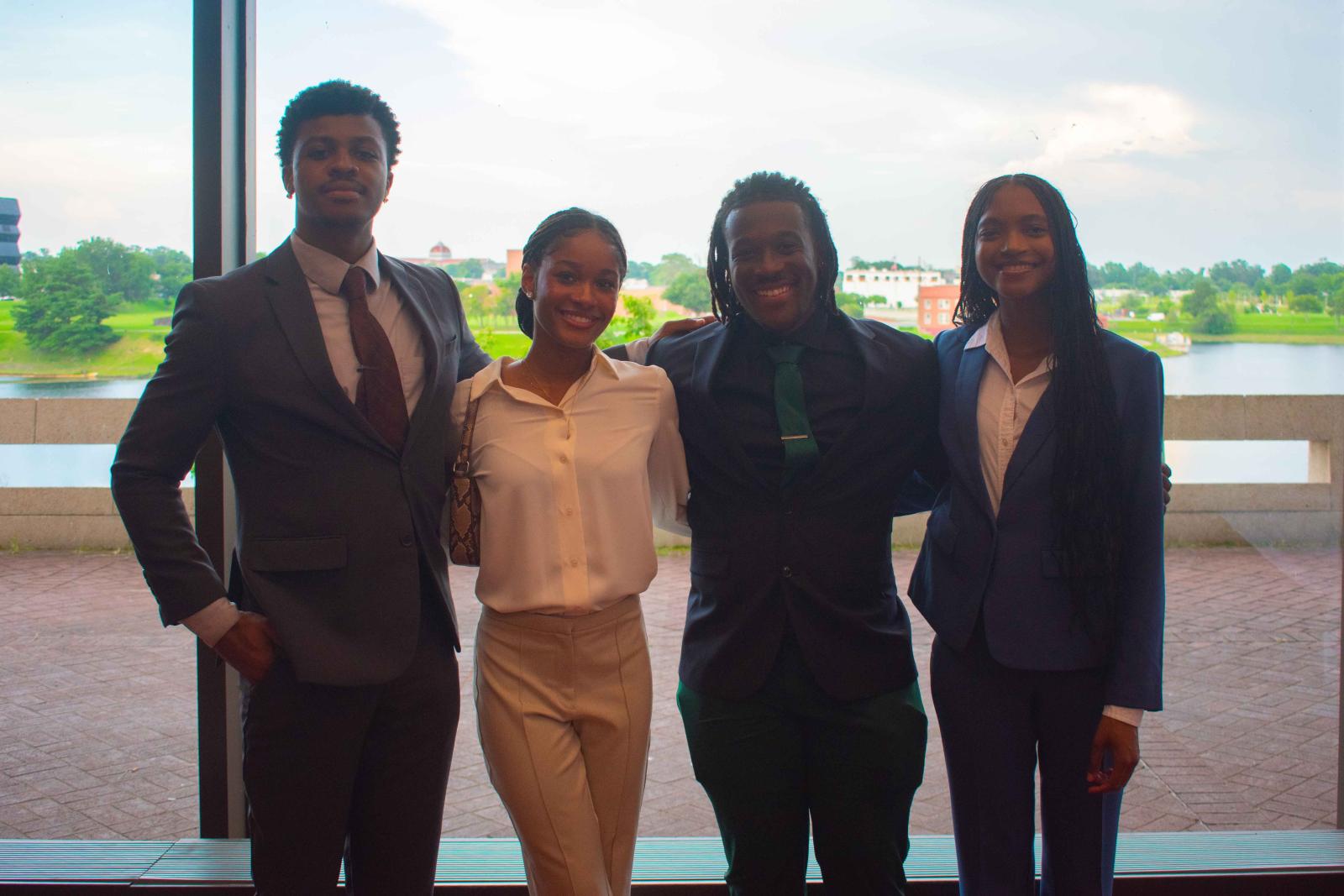
“I wasn’t really as nervous as everybody else was, only because when we got there and we got to the soiree and we danced and we talked, it felt like home then and there,” he said. “And I knew this is definitely the place I wanted to go to college. Once I came for selection weekend, there were no ifs, ands, or buts.”
That feeling of home has only continued throughout the scholarship’s Summer Bridge Program. The six-week program prepares scholars for the rigors of pursuing a doctoral degree, developing skills in time management, decision-making, interdependence, and critical thinking. Although the program is intensive, it also helps the scholars form lasting bonds, as they live in the same dorms, bounce ideas off one another in seminars, and explore D.C. together. This year, the program ended in a trip to Ghana to learn more about international research and the work of scholars outside of the United States.
“I’ve never been outside the country, let alone have I ever been to Africa. And one of the courses that we took this summer was African American Studies under Dr. Mario Beatty, Dr. Joshua Myers, Dr. Greg Carr, and Dr. Valethea Watkins, who are superstars in their field,” Cockerham explained. “And they talked a lot about what goes on in those countries and how studious and scholarly they are and work that’s not acknowledged by the rest of the world.”

For Cockerham, the trip — like his time at Howard — is an opportunity to deepen his own understanding of himself. “It’s also going to give me a chance to go full circle,” he said. “Maybe they have some of the answers as to why I want to do a lot of the things that I want to do, or where the foundations of this discipline lie, or even just about who I am as a Black man,” he said. “I feel like I will definitely find that when I go, because I definitely had thoughts of doing research across the country. So, for me, it’s a way of reconnecting to my roots in a way that I’ve never been able to before.”


